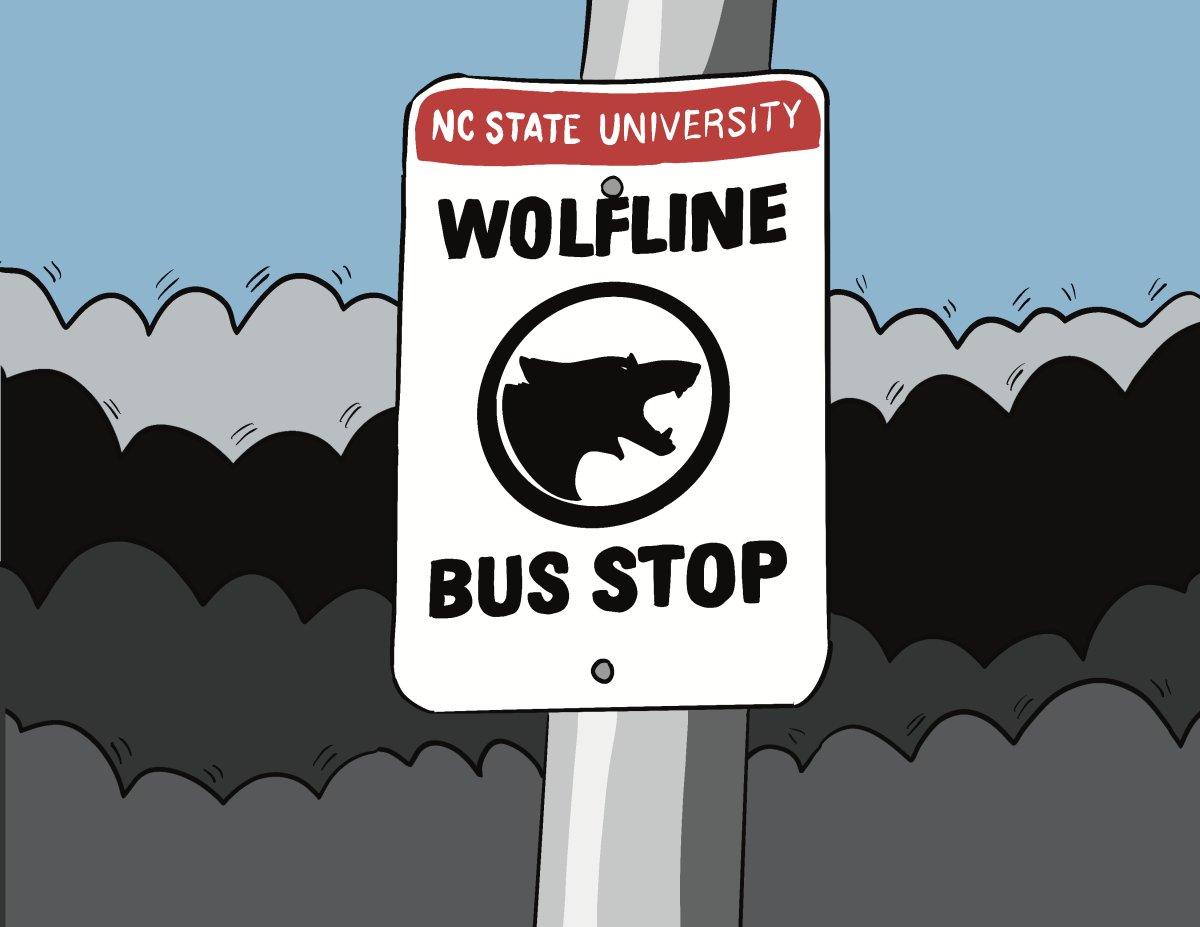As students begin their commutes to their first classes of the year, the NC State Transportation department is facing a bus driver shortage that is leaving many bus routes understaffed and underserved.
As a result of the bus driver shortage, the department has been reducing bus services over the past three weeks. Although fewer buses are running overall, the NC State Transportation website assures riders that each route will still be served in some capacity.
“A lot of my friends, I’ve heard they’ve tried to get on the bus, and they’re just unable to, cause it’ll drive past them cause it’s full,” said Mimi Dizes, a third-year studying biological sciences. “Or another bus won’t be on the route, and so they need to figure out another way to get to class.”
Cooper Howe, a first-year in the engineering program, has also been impacted by the shortage. He says that though he has been able to find other ways around campus, he was initially worried by the lack of buses.
“First day of classes as a freshman, [I was] kind of freaking out because there [weren’t] any buses nearby,” Howe said. “And yeah, it’s just been having to walk a lot more — not like that’s a big problem — but still kind of annoying every once in a while.”
Howe has also run into issues trying to track the buses on the Transloc app.
“Sometimes the buses won’t track properly, and just also weird stuff, like you’ll see them float around on the map,” Howe said. “It’s very weird.”
The Wolfline is not the only local bus system that is contending with a short supply of drivers. The Wake County Public School System is around 100 drivers short this year, forcing the system to merge routes and causing frustration among parents. GoRaleigh, GoDurham, GoCary and Chapel Hill Transit are all pushing for new drivers and reducing services as well.
“It’s a number of factors, just people’s uneasiness with COVID-19,” said Demar Bonnemere, the NC State Transportation communications manager. “And we’re not unique in that situation. Wake County bus drivers are struggling to keep up with their routes. So it’s a regional issue that’s not unique to us.”
Many students have been caught off guard compared to the bus service of previous years. Emilie Tice, a second-year studying psychology, took the bus regularly last year and has had a much different experience with the Wolfline service this year.
“It was definitely better back then; I never had to wait nearly as long,” Tice said.
Although resolving the bus driver shortage and returning to pre-COVID-19 bus service may be outside of the control of the transportation department, their current goal is to establish consistent bus routes with their current drivers.
“We’re trying to strike a balance with the routes right now,” said Connor Jones, the NC State Transportation transit planner. “We are working on making sure everything is, not normal per se pre-COVID-19, but maybe a new normal and trying to establish regular routes that we can run with the resources we have.”
Until then, both Bonnemere and Jones recommend the Transloc app for keeping track of the Wolfline buses.
“That’s going to be the most up to date information with the buses. Any time there’s changes, it’s reflected in the app,” Bonnemere said. “As well as using the app, you can kind of see where the buses are in real time. That’s going to be your best bet, just using the Transloc app.”
You can learn more about and download the Transloc app here. For updates on the current state of Wolfine services, you can view the NCSU Transportation department’s website.













